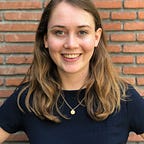Week 7
Welcome back
After the crazy confluence week, the first thing we did was sit down and figure out the schedule to get our heads back in the game. Conclusion: if we want to do a workshop we have to get moving NOW and find participants! A lot of our time this week was spent reaching out to people we had interviewed to ask if they would be interested and some new connections as well.
Reiterating our design direction
We did a group session and recap of our possible design directions. I think as a group we were a bit thrown off by the feedback we received after our presentation. And had to deal with the realization that our direction shift may not have been communicated as clearly as we hoped it had been. With the shift, I mean the redirect from food & community gardens to looking at communities more holistically. We have a few possible design directions we want to look into (the one we choose will be dependent on who is willing to do a workshop with us):
- How can we bridge the gap between communities of practice and the community (place) in which they exist?
- How frameworks be designed for designers to research/co-design with marginalized communities without being extractivist?
- How can we engage the youth in a neighborhood to build a community of practice?
It is important to note the major distinction we are making between:
- Communities of practices = people gathering because they have similar interests
- Communities of place = people gathering because they are physically near to each other (neighbors)
Interviews & Main Takeaways:
Interview Protohaven
See our google drive for the notes!
Interview Hannah — volunteer at Peace Corps Fiji
- The first 3 months spent just getting to know the community and integrating — taking part in local customs, etc.
- It is very important that the community ASKS us to be there, we never go somewhere to help if the community hasn’t applied for the aid. This is how you know if there is an actual desire for change
- Peace Corps volunteers are connected to a local counterpart from the village — kind of like a mentor.
- Especially working across cultures language use is very important! e.g. the village she works in is very religious so bible references to explain work well.
- Overcoming assumptions (towards Americans) is a large part of the first months in the village.
- Most important characteristics are that: you have to go with the flow, be flexible, ask a lot of questions, be respectful and open
Interview with Nandini about Participatory Budgeting
Back in New Zealand, Nandini worked as a freelancer within Enspiral and they work with the principle of participatory budgeting (the organization even built their own app called Cobudget).
How it works:
As a member, I would give a percentage of what I earned as a freelancer back to the network. With the money people put in, every month buckets were created to support an idea or cause. The buckets that most people put their money towards were the ideas that became a reality. I’m still a contributor but now I only pay 5$ a week.
Main takeaways:
- How money flows & where it comes from (ownership) is a very important aspect of participatory budgeting!
- Voting with money is very powerful and creates an interesting dynamic. Without money — every vote is equal, whereas with participatory budgeting more money buys more influences e.g. if you had more money and put it toward a website — the website will be built.
Other resources provided by Nandini:
Allied Media has incredible Zines!!
Working on Workshop
We started by identifying what we wanted to gain from this workshop.
Then we split it up into different sections and started brainstorming methods we could use in a workshop.
Determining protocol & agenda
On our google drive you can find the lastest version of our workshop protocol (work in progress):
